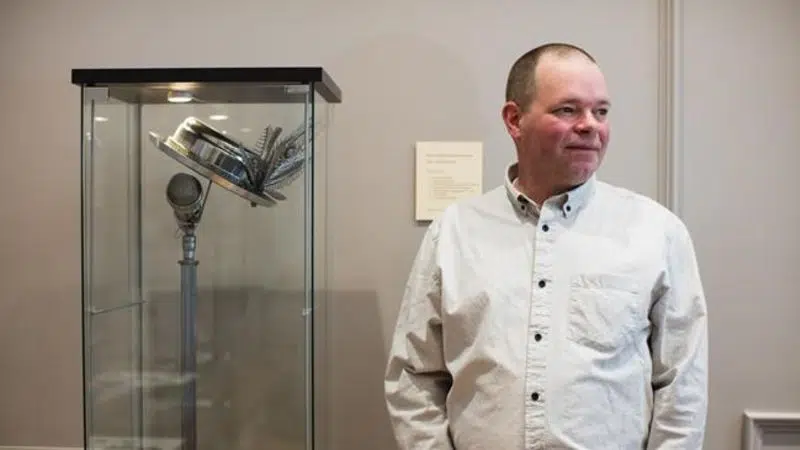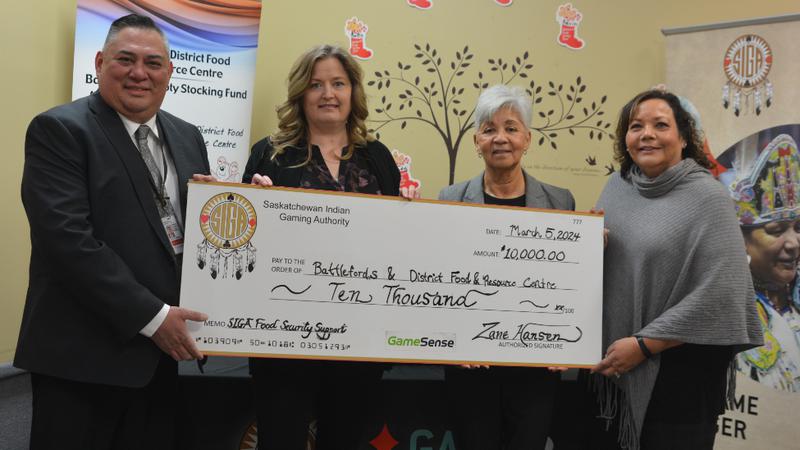
Gord Downie sculpture unveiled at Halifax City Hall’s reconciliation space
HALIFAX — A Gord Downie tribute sculpture has been unveiled at Halifax City Hall, in a room that aims to foster conversations about Indigenous history and reconciliation.
The sculpture was created by artist Al Hattie using recycled metals that emulate a microphone stand and Downie’s signature hat, complete with feathers.
On a wall behind the sculpture — titled “The Last Show” — is the shadowy profile of the Tragically Hip frontman.


